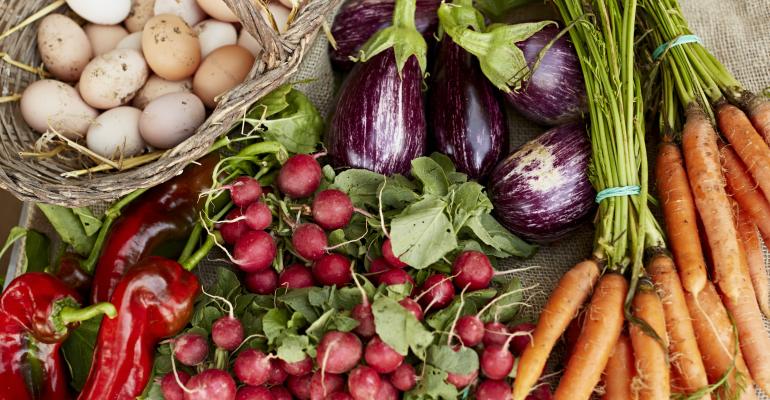The U.S Department of Agriculture has published new organic product certification regulations that the agency said will deter fraud and improve transparency and product traceability.
The Strengthening Organic Enforcement Rule, which takes effect in March but will not be enforced for the first year, “will assure consumers that organic products meet a robust, consistent standard and reinforce the value of the organic label,” the USDA said.
Through the National Organic Program (NOP), the USDA Agricultural Marketing Service oversees the administration and enforcement of organic regulations. The NOP has always had strict standards for how products could be certified as organic, but those standards had been created when the organic industry was much smaller and more localized, the agency said.
Organic sales are the fastest-growing segment of the industry, with sales surpassing $63 billion in 2021, according to the Organic Trade Association.
Fraudulent organic claims are of particular concern, the USDA said, because of high demand for organic products, the absence of direct enforcement over some entities in the organic supply chain, and the incentive for fraud, given the high price premiums for organic food products. Cases of fraud have increasingly involved imports from overseas, including false claims in the organic grain and oilseed supply chains.
“Federal investigations show that organic grain and oilseed fraud can lead to tens of millions of dollars in fraudulent sales within just a few months,” the USDA said.
According to the USDA, the new regulations seek to:
- Reduce the types of uncertified entities in the organic supply chain that operate without USDA oversight, including importers, certain brokers, and traders of organic products
- Require the use of NOP Import Certificates for all organic products entering the U.S.
- Clarify the NOP's authority to oversee certification activities, including the authority to act against an agent or office of a certifying agent.
The OTA, which has long supported the regulation, said the new rule would help deter and detect organic fraud and protect organic integrity throughout the supply chain.
“The Organic Trade Association has prioritized significant time and resources into actions that will help mitigate and prevent organic fraud,” the association said in a statement.
OTA cited its legislative efforts in the 2018 Farm Bill that authorized the key provisions of this new rule, its engagement with the National Organic Standards Board on recommendations for the regulation, its extensive official comments on the proposed rule and its ongoing campaign to continuously improve organic standards.
The new regulation represents the biggest change to organic regulations since the creation of the NOP in 2001, the OTA said. The rule closes gaps in current organic regulations and builds consistent certification practices, according to the association.
In preparation for the implementation of the rule, OTA said it will focus on providing support and resources for its members to ensure successful compliance.
The OTA offers organic guidelines for retailers here.





